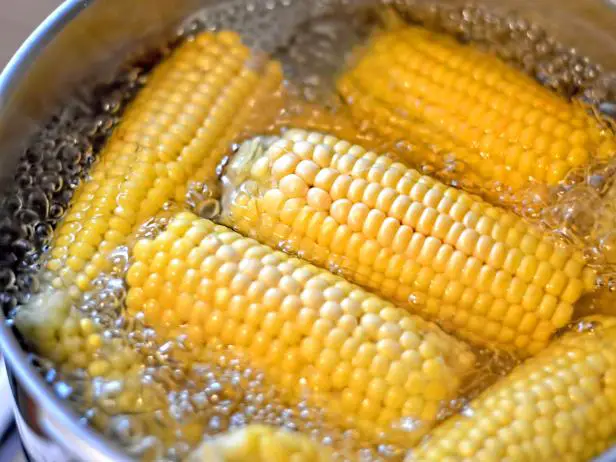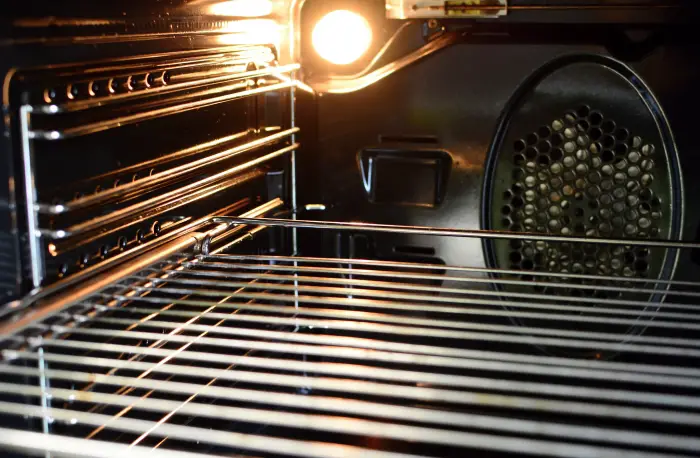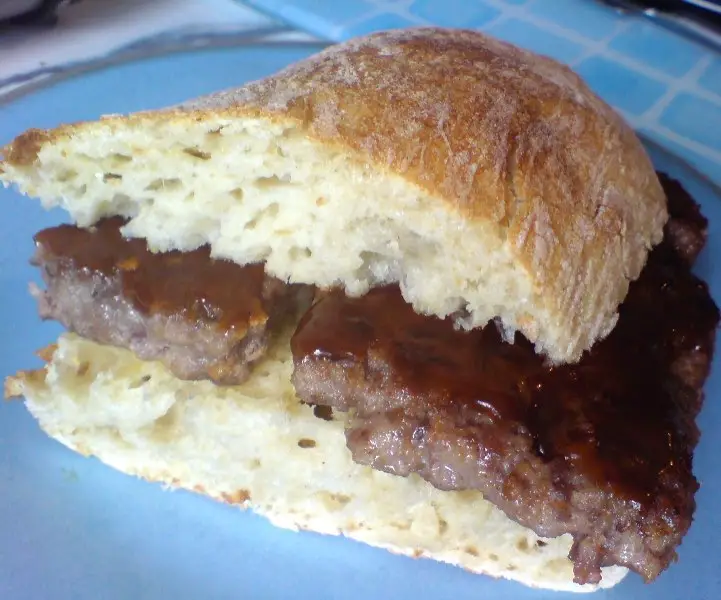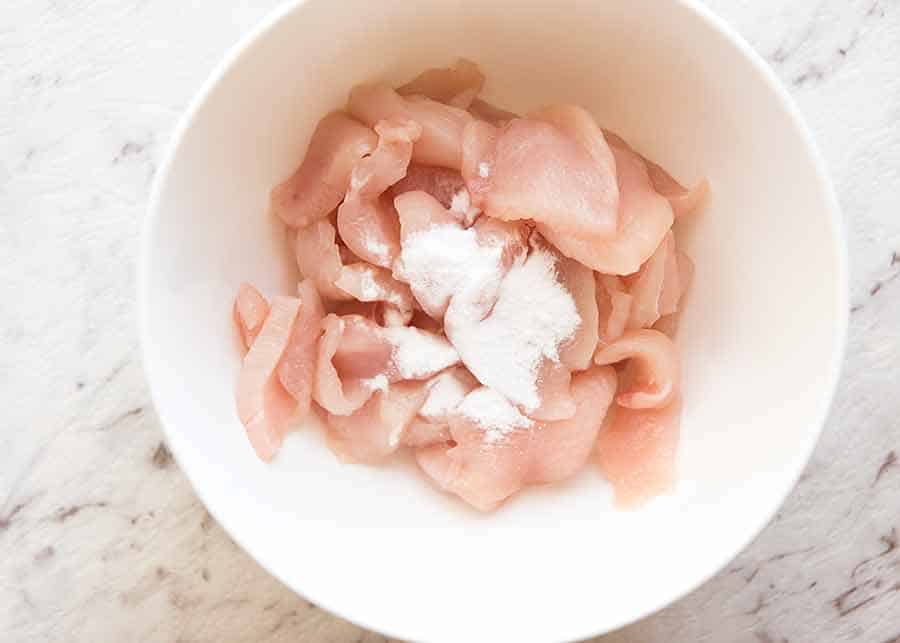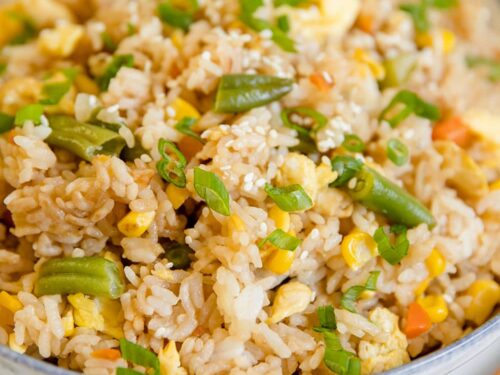Corn is a popular staple food in many parts of the world and comes in various forms. One of the most common ways to cook it is by boiling it, but many people wonder if they can leave boiled corn in water.
This question has interesting elements that relate to the science behind corn, its composition, and the boiling process used for cooking it.
The Science behind Corn
Corn belongs to the grass family and is grown as a major food crop worldwide. It contains many beneficial nutrients like carbohydrates, vitamins, fiber, and minerals. The outer layer of corn kernels comprises pericarp wax which helps retain moisture during cooking. When you boil corn, heat causes starch granules inside kernels to harden and absorb water which results in softening its texture.
Boiling corn involves submerging the cobs in hot water for about 10-12 minutes or until they turn yellowish. You can also add salt to boiling water for flavor enhancement.
Reasons for Leaving Boiled Corn in Water
Retaining Heat: Boiled corn retains heat that prevents chilling foods when added to cold storage devices like refrigerators. This makes it an ideal food item when served hot during meals without re-heating or microwave.
Avoid Overcooking or Texture Loss: Overcooked boiled corn turns tough, chewy, or mushy due to excessive cooking time. Leaving boiled corn in warm water helps avoid such issues by keeping them intact with optimum textures softness.
Storing Leftover Cooked Corn: Sometimes you may cook more boiled corn than required leaving excess cooked grains where storing leftovers becomes necessary before they go bad or spoil thus warmed boiled grain does not dry up rapidly while retaining freshness with warm soaking water.
Potential Risks of Leaving Boiled Corn in Water
Changes to Taste and Texture: If left too long, boiled sweetcorn will become overcooked with starchy taste; this may lead to a change in their texture to become tougher or mushy and less tasted the next time it is consumed.
Risk of Spoilage and Bacteria Growth: Leaving boiled corn in water increases the risk of bacterial growth due to warm, moisture-retaining environments. Typically, microorganisms are introduced from hands or utensils that contact cooked food without following proper food hygiene regulations. This ultimately leads to spoilage and foodborne illnesses potentially harmful to humans.
How to Properly Store Boiled Corn?
The best storage method for boiled corn depends on whether it will be eaten immediately, chilled or frozen for later use; these storage methods maintain freshness & prevent spoilage such as:
- Immediate Consumption: If you plan on consuming boiled corn right after cooking them, it is best to remove them from the boiling pot with tongs and place in a serving dish. Leaving corn cobs submerged in hot water until ready-to-eat keeps cooked grains warmed up.
- Chilling Boiled Corn: If not eaten immediately, and you want cooled boiled sweetcorn for salads plates then fill a bowl with cold water & ice cubes below cooking down on top of ice watching as temperature lowered transferred into airtight container put them in the refrigerator. Covering corn cobs helps keep air out maintaining its taste & quality intact–use within two days.
- Freezing Boiled Corn: Freeze boiled corn when needed by let cool (around 5-10 minutes) then dehusk kernels cut down cobs using a knife or kitchen shears cut kernels from ear into resealable bags. Use labels to avoid confusion between different foods in the freezer also the date placed in an idealized area.
Conclusion
In summary, leaving boiled corn in water can have advantages when storing leftovers for future consumption while maintaining warmth but should be cautiously done within an hour of cooking after which texture change becomes evident, leading to related risks such as spoilage or bacterial growth when extending more than two hours. When storing leftovers, always remember to use proper food storage methods like refrigeration or freezing to prevent spoilage and foodborne illnesses. Stay safe and enjoy your boiled corn according to your liking!
Q&A
Q1. Can boiled corn be left in water for too long?
A: Yes, leaving boiled corn in water for too long can result in the loss of nutrients and flavor. It is recommended to only keep boiled corn in water for 15-20 minutes before serving.
Q2. Is it safe to leave boiled corn in water overnight?
A: No, leaving boiled corn in water overnight is not recommended as it can lead to bacterial growth. It is best to remove the corn from the water and refrigerate it if it will not be used immediately.
Q3. Can I reuse the water used to boil corn?
A: Yes, you can reuse the water used to boil corn as a flavorful broth or stock for soups and stews. However, make sure to strain out any debris or bits of husk before using.
Q4. Does boiling corn in salted water affect its taste?
A: Yes, boiling corn in salted water can enhance its natural sweetness and flavor. However, make sure not to over-salt the water as it can lead to a salty taste that overpowers the natural flavors of the corn.
